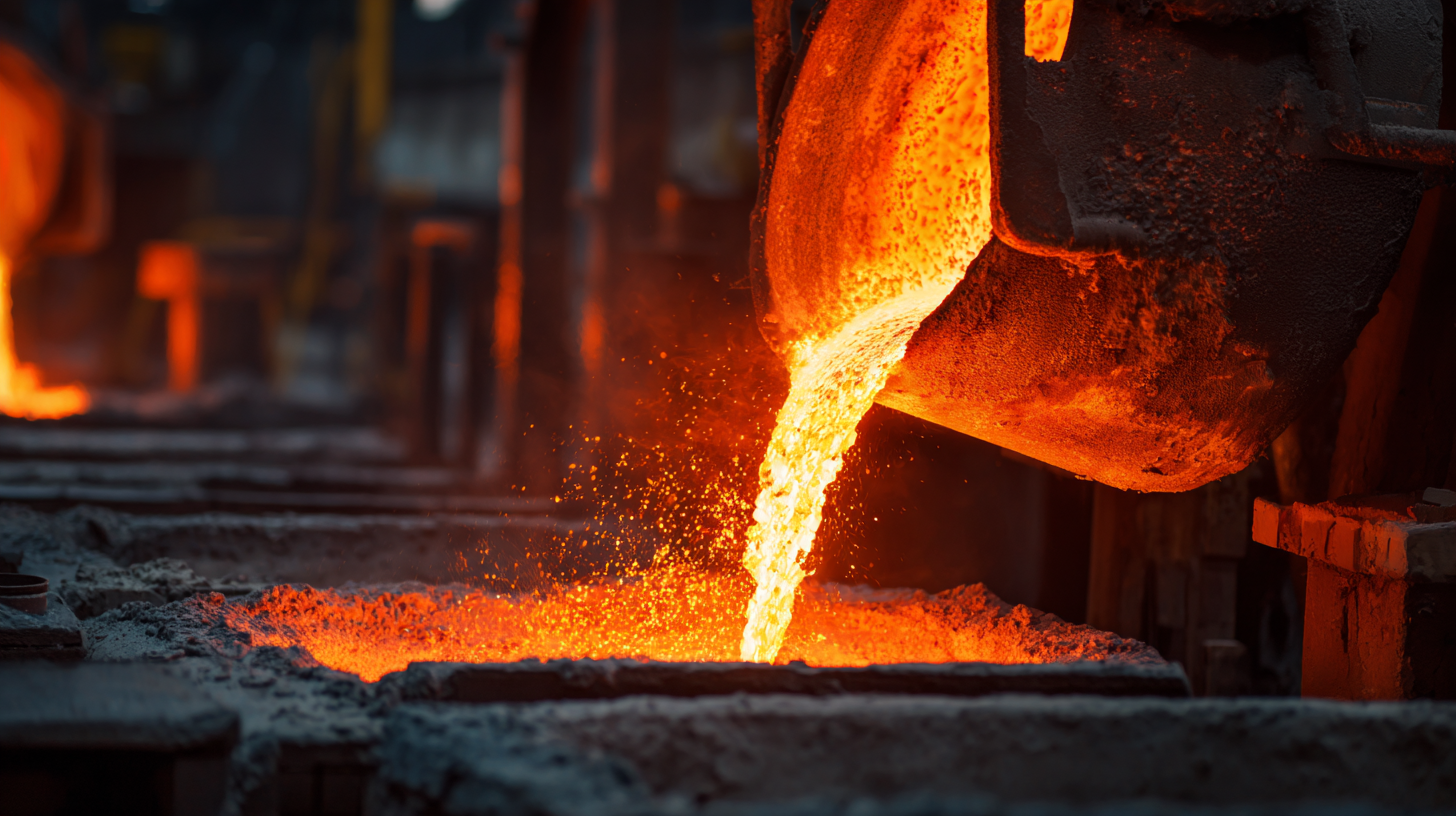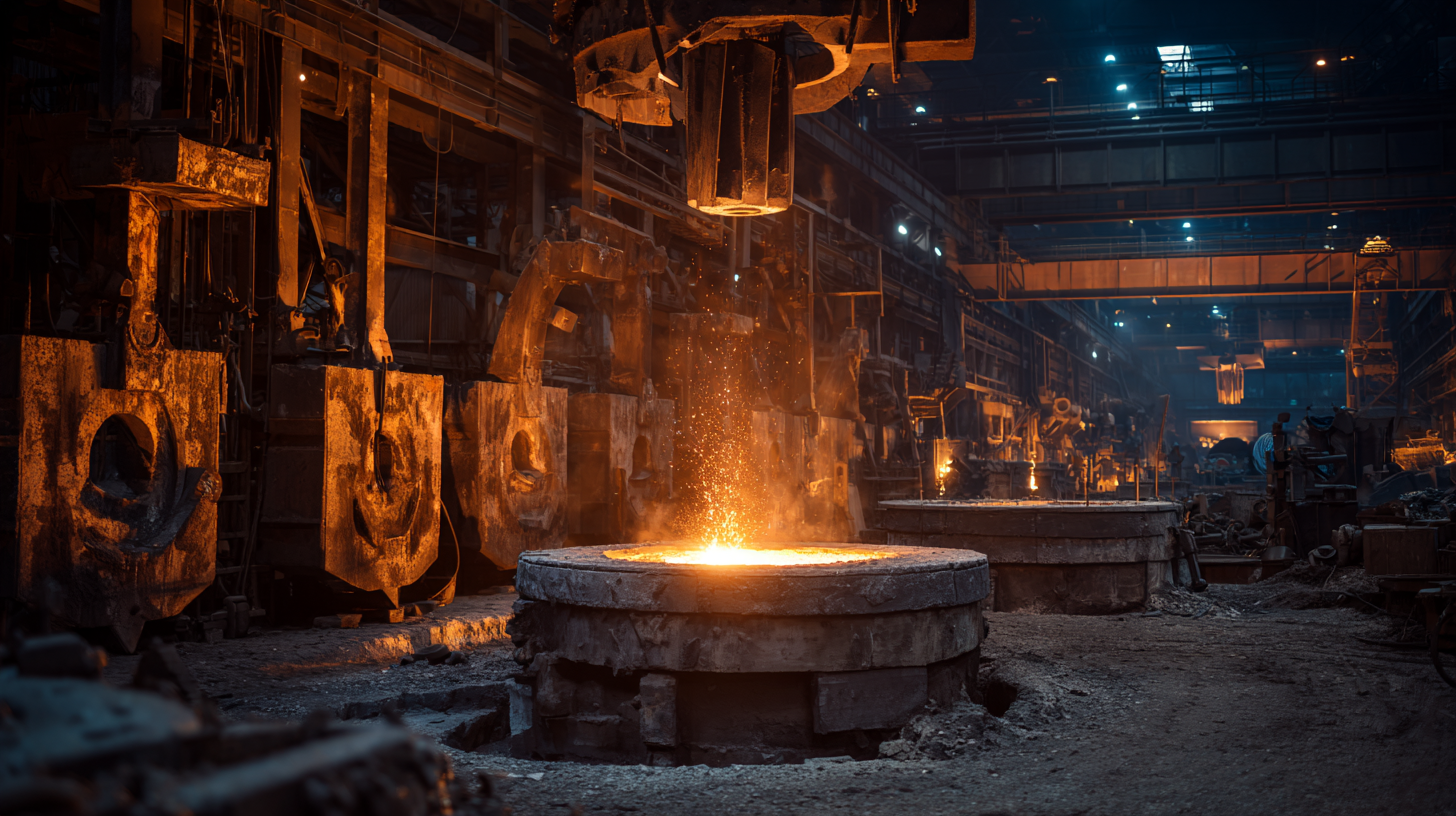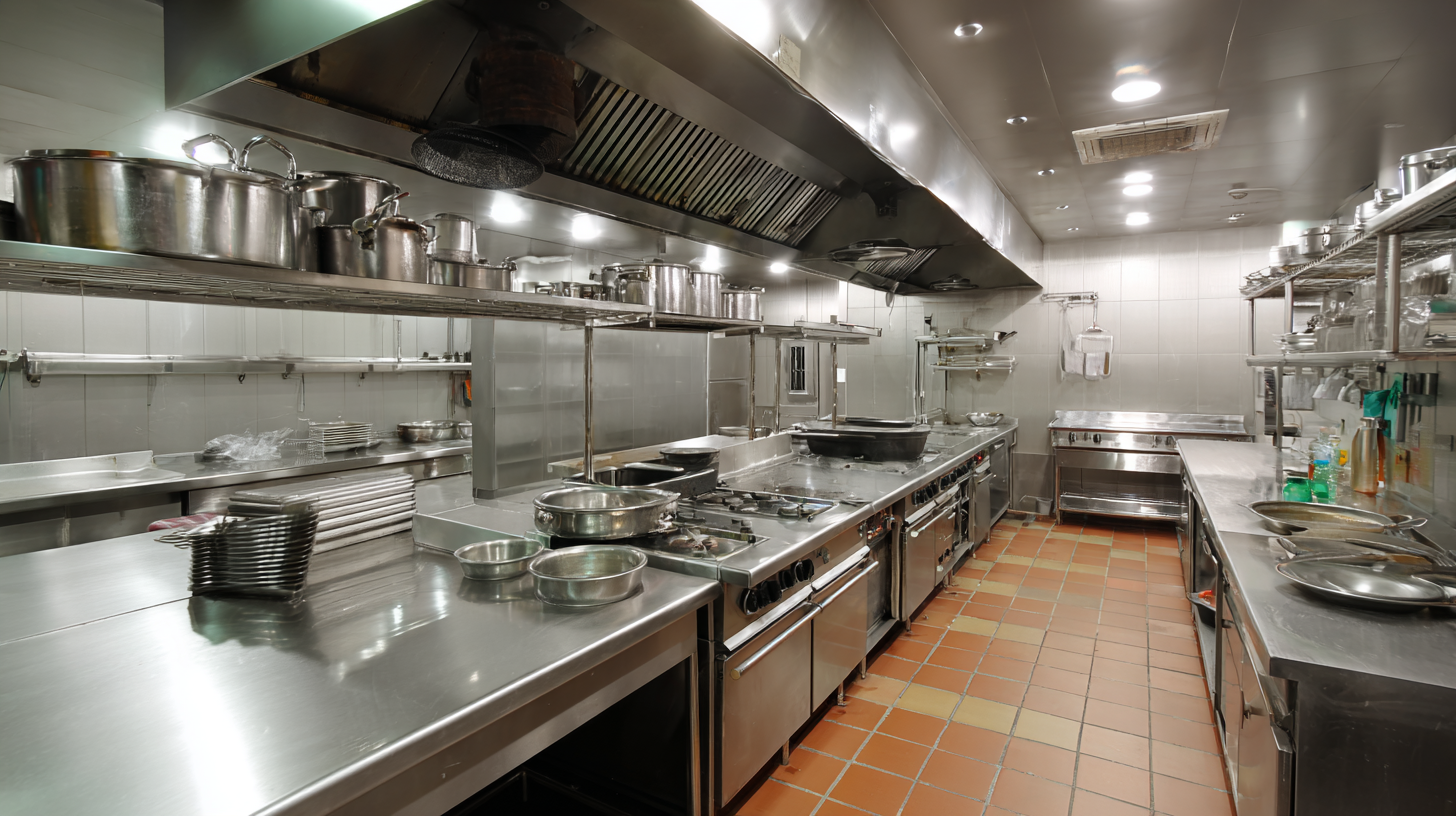In today's competitive manufacturing landscape, selecting the right Stainless Foundry is crucial for meeting industry demands and ensuring product quality. According to a recent report by Research and Markets, the global stainless steel market is projected to reach USD 165 billion by 2027, driven by surging demand in key sectors such as automotive, construction, and energy. However, the success of a business depends not only on the material used but also on the capabilities and reliability of the foundry. Factors such as production capabilities, quality assurance processes, and technological advancements play a significant role in determining the best fit for specific business needs. Therefore, understanding the benefits of working with a reputable Stainless Foundry can help companies optimize their operations and gain a competitive edge in the marketplace.

Choosing the right stainless foundry is critical for aligning with your business requirements and ensuring product quality. To make an informed decision, start by assessing the specific needs of your operations. This includes evaluating the types of stainless steel components required, expected production volumes, and the application of these components in your products. According to a recent market study by Smithers Pira, the stainless steel foundry market is projected to grow by 4% annually through 2027, emphasizing the need for businesses to select foundries that adapt to evolving industry demands.
Tip: Always request detailed manufacturing capabilities and previous project examples from potential foundries. Understanding their specialization in various grades of stainless steel can significantly influence your product's performance and durability.
Furthermore, consider the foundry's quality assurance processes and certifications. A November 2022 report from the American Foundry Society highlights that companies with rigorous quality standards experience 30% fewer defects. Ensure that the foundry you select provides consistent quality control measures and adheres to ISO standards specific to stainless steel production.
Tip: Schedule a site visit to evaluate the foundry’s equipment and operations firsthand; this will provide insights into their production capabilities and commitment to quality.

When evaluating stainless foundries for your business needs, several key factors play a crucial role in ensuring that you make the right choice. First, consider the foundry’s experience and expertise in working with stainless steel alloys. A foundry that specializes in this material will have a deeper understanding of its properties and the challenges involved in casting, which can lead to better quality products and adherence to industry standards. Look for certifications and past projects that demonstrate their capability and reliability.
Another critical factor is the foundry's production capabilities, including technology and equipment used in the manufacturing process. Advanced technology can improve accuracy and efficiency, resulting in more precise castings and reduced lead times. Additionally, assess their ability to handle both small-scale and large-scale production runs, as flexibility in order size can be beneficial for your business. Don’t forget to evaluate customer support and communication practices, as a foundry that values client relationships can greatly enhance your collaboration and project success.
When selecting a stainless foundry for your business, understanding the quality standards is vital. Just as Digital Foundry rigorously examines the performance and image quality improvements in gaming consoles, evaluating foundries requires a similar level of scrutiny. Different foundries often adhere to varying quality assurance processes, impacting the final products you receive. Be sure to compare their certifications, the materials they use, and their production techniques to ensure they align with your business’s quality requirements.
Moreover, consider the advancements in technology and innovation that some foundries are adopting. For instance, the introduction of automated processes can lead to significant improvements in production efficiency and product precision. Just as the latest gaming technology enhances user experiences, the right foundry should be equipped with modern machinery and practices to deliver superior results. This assessment should encompass everything from customer reviews to industry benchmarks, ensuring that you choose a partner that not only meets but exceeds your expectations in quality.
The landscape of stainless foundry manufacturing is evolving rapidly, driven by technological advancements that enhance production efficiency and sustainability. As industries increasingly rely on stainless steel for its durability and resistance to corrosion, manufacturers are investing in innovative casting processes. These advancements not only improve the quality of the final products but also contribute to reducing waste and energy consumption during production, aligning with global sustainability goals.

In the context of the growing investment casting market, projected to exceed USD 17 billion by 2032, businesses must prioritize selecting foundries that leverage these technological innovations. The competition is fierce, with the Europe metal casting market forecasted to grow significantly, reflecting a strong demand for high-quality and efficiently produced components. Companies aiming to thrive in this dynamic environment should focus on collaborating with foundries that adopt modern techniques, ensuring they stay ahead of industry trends while meeting their unique business needs.
When selecting a stainless foundry for your business, evaluating customer support and service is crucial for establishing a long-term partnership. According to a recent industry report by the American Foundry Society, over 60% of manufacturers prioritize supplier support when making purchasing decisions. Effective communication and responsiveness can significantly impact your production timelines and overall satisfaction. A foundry that offers dedicated account management and rapid response to inquiries demonstrates a commitment to your success and can help navigate challenges as they arise.
Moreover, ongoing support and technical assistance can lead to improved product quality and performance. A study by the National Association of Manufacturers found that firms that maintain strong relationships with their suppliers experience a 20% increase in operational efficiency. By ensuring that your foundry provides comprehensive after-sales support and readily available technical resources, you are more likely to benefit from innovations and improvements in processes. Partnering with a provider focused on customer relationship management will not only enhance project outcomes but can also foster a collaborative environment for future developments.
| Foundry Name | Customer Support Rating | Response Time (Hours) | Years in Business | Average Delivery Time (Days) |
|---|---|---|---|---|
| Foundry A | 4.8/5 | 2 | 15 | 10 |
| Foundry B | 4.5/5 | 3 | 20 | 12 |
| Foundry C | 4.7/5 | 1 | 10 | 7 |
| Foundry D | 4.0/5 | 4 | 8 | 15 |




